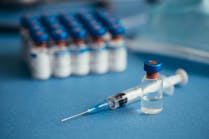FDA's future inspection plans need to address issues presented by COVID-19 backlog
The United States Government Accountability Office (GAO) looked at the drug manufacturer inspections after the U.S. Food and Drug Administration (FDA) paused most of those inspections since March 2020 to safeguard its employees. The outbreak of COVID-19 has called greater attention to the United States' reliance on foreign drug manufacturers.
FDA reports that 74% of establishments manufacturing active ingredients and 54% of establishments manufacturing finished drugs for the U.S. market were located overseas, as of May 2020. FDA is responsible for overseeing the safety and effectiveness of all drugs marketed in the United States, regardless of where they are produced, and it conducts inspections of both foreign and domestic manufacturing establishments.
GAO has had long-standing concerns about FDA's ability to oversee the increasingly global pharmaceutical supply chain, an issue highlighted in GAO's High Risk Series since 2009. FDA used alternative inspection tools to oversee drug manufacturing quality, such as relying on foreign regulators and sampling and testing drug. GAO says these are not a comprehensive or long-term substitute for inspections.
Fiscal year 2015 was the first time that FDA conducted more inspections of foreign drug manufacturers than domestic manufacturers, with the majority conducted in China and India. However, in June 2020, GAO reported that from fiscal year 2016 through fiscal year 2018, both foreign and domestic inspections decreased, in part due to staffing vacancies. While foreign inspections increased in 2019, since March 2020, FDA has largely paused foreign and domestic inspections due to the COVID-19 pandemic, conducting only those deemed mission critical. In January 2021, GAO reported that FDA conducted three foreign inspections in fiscal year 2020 following the pause—significantly less than in recent years.
FDA has used alternative inspection tools to maintain some oversight of drug manufacturing quality while inspections are paused. These tools include relying on inspections conducted by foreign regulators, requesting and reviewing records and other information, and sampling and testing drugs. FDA has determined that inspections conducted by certain European regulators are equivalent to and can be substituted for an FDA inspection. Other tools provide useful information but are not equivalent. In addition, FDA was unable to complete more than 1,000 of its planned fiscal year 2020 inspections and will likely face a backlog of inspections in future years. In January 2021, GAO recommended that FDA ensure that inspection plans for future fiscal years respond to the issues presented by the backlog and that FDA fully assess the agency's alternative inspection tools. FDA concurred with both recommendations.
Even before the COVID-19 pandemic, FDA faced persistent challenges conducting foreign inspections. GAO found in December 2019 that there continued to be vacancies among the investigators who conduct foreign inspections. GAO further found that FDA's practice of preannouncing foreign inspections up to 12 weeks in advance could give manufacturers the opportunity to fix problems ahead of the inspection and raised questions about their equivalence to domestic inspections. In light of COVID-19, FDA is now preannouncing both foreign and domestic inspections for the safety of its staff and manufacturers. GAO also found that language barriers can create challenges during foreign inspections as FDA generally relies on the establishment for translation services.
This statement is largely based on GAO's Drug Manufacturing Inspections enclosure in its January 2021 CARES Act report, as well as GAO's December 2019 and June 2020 testimonies. Specifically, it discusses (1) the number of FDA's foreign inspections, (2) FDA's response to the COVID-19 pandemic pause in inspections, and (3) persistent foreign inspection challenges. For that work, GAO examined FDA data from fiscal years 2012 through 2020, interviewed FDA investigators, and reviewed documents related to drug oversight during the COVID-19 pandemic, among other things.





